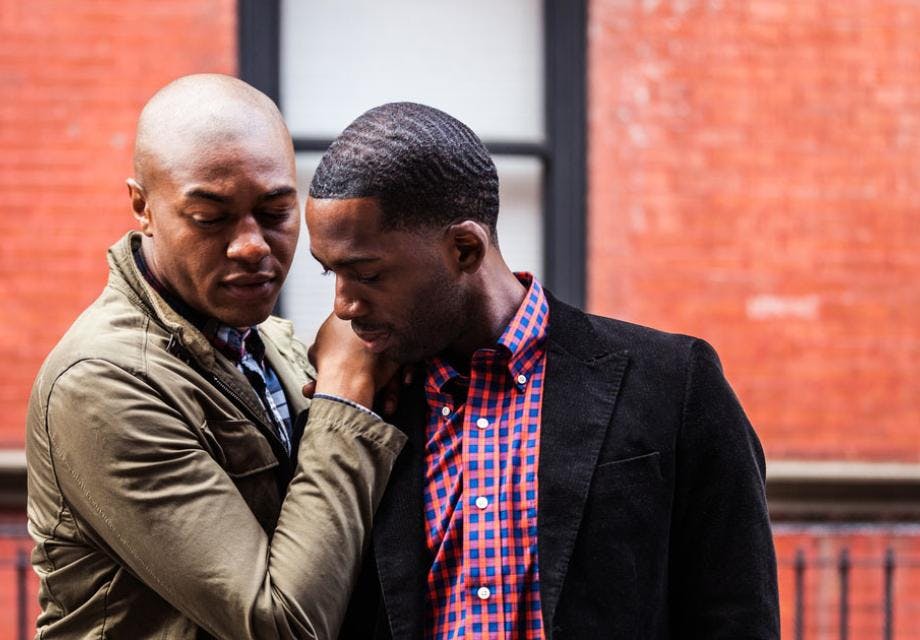What happens when stigma and discrimination take the place of compassion
Levy Ngosa
29 July 2020
Levy Ngosa explores how the knock-on effect of discriminatory laws and policies impede access to HIV prevention and treatment services
I’m from Zambia where same-sex relations are illegal, and where HIV prevalence is high – in 2017 it stood at 11.5% among adults aged between 15 and 49.
We’ve been brought up to believe that sexual attraction can only be between people of the opposite sex. What this rigid social and religious construct fails to acknowledge is that we do not all fit into these limited ideas of gender identity and sexuality. And if we’re ‘different’ we’re treated as if there’s something wrong with us, sometimes being described as having a ‘mental disorder’ according to the same constrained powers that be.
The knock-on effect is that stigma and discrimination towards the lesbian, gay, bisexual, and transgender (LGBT+) community here in Zambia is entrenched not only in the fabric of daily life, but also within the very healthcare services that are meant to protect and support us in preventing new HIV infections and treating those living with HIV.
Because of the perception that LGBT+ people are carriers of HIV, some healthcare providers deliberately avoid interacting with us, others discriminate, and discrimination takes the place of compassion, which is at the very heart of our existence as human beings.
I always tell myself not to take it personally; I always tell myself that people are not entitled to personal information on sexual orientation or gender identity unless someone wants to share it. Thinking like this helps me to deal with the high levels of discrimination I’ve experienced, especially when it comes to accessing basic HIV services.
Our 2017-2021 National HIV/AIDS Strategic Framework recognises men who have sex with men and transgender people as key population groups who are at risk of either contracting or transmitting HIV and yet, the lack of policies and guidelines for the provision of healthcare services to LGBT+ people filters down to outright discrimination towards us by health professionals.
In addition, there is little or no comprehensive sexuality education that specifically addresses discrimination towards LGBT+ people within healthcare settings. It goes without saying that this is a missed opportunity to educate on both gender identity and the HIV epidemic, and the huge problem of entrenched stigma and discrimination within the wider community.
To compound the problem even further, discrimination based on sexual orientation and gender identity is institutionalised in the form of laws that punish and imprison those found ‘guilty’ of same sex relations.
Our legal framework means that discrimination based on sexual orientation and gender identity is not only institutionally entrenched, but also kept in place by the very people who have the power to protect sexual and gender minorities within the healthcare system (should they choose).
A 2017 report published by PANOS Institute Southern Africa, Right to Equality revisits the Universal Declaration of Human Rights, which Zambia - as a member of the United Nations - is a signatory to:
The right to equality and non-discrimination is the cornerstone of human rights which entails that everyone is equal and has equal value, and that no one should be treated with discrimination.
It’s clear that some of our problems in accessing HIV services in Zambia stem from the wide disparity between the well-meaning rhetoric of international treaties and what happens in reality.
Most of us in the LGBT+ community prefer to access HIV services delivered by non-governmental organisations. We know that they recognise individuals that don’t ‘fit’ and that they work to improve the lives of all marginalised groups including the LGBT+ community and sex workers.
We can’t force people to understand or accept us. However, the fact that we aren’t protected at institutional levels means that we’re limited as individuals in how we challenge day-to-day discriminatory attitudes and behaviours. However, there are a handful of healthcare providers who are not only tolerant but who accept our differences. These people have established good relations with members of the LGBT+ community and it gives us hope for positive change here in Zambia.
Levy Ngosa is a citizen journalist from Zambia. We've been working together with Levy and other citizen journalists across Southern Africa to develop a new series of stories on Avert.org, Stories for Change. Stories for Change is a series of real-life stories, each episode features a first-person experience exploring HIV, stigma and sexual health.
Get our news and blogs by email
Keep up-to-date with all our latest news stories and blogs by signing up to the Be in the KNOW news digest.
